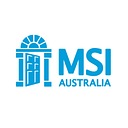Speech by Delaram Ansari | The Road to Abortion Equity
The Federal Senate has established an Inquiry into universal access to reproductive healthcare. The Inquiry was called because the government has acknowledged we have a crisis of sexual and reproductive health access.
On Wednesday 9 November 2022, we hosted an online forum to explore what the inquiry terms mean, how it applies in practice and provided a submission template which you can download here to assist people in writing their own.
Delaram Ansari gave the following speech at our webinar, which you can watch here.
I would also like to acknowledge that I’m joining you from unceded sovereign lands of the Wurundjeri people of the Kulin nation, and I pay my respect to elders past and present and extend that respect to any Aboriginal people who are joining us here today.
In my discussion of the two points (d and e of the terms of reference) I’m focusing on unpacking the intersectional approach necessary to achieve health equity and abortion equity.
Point D specifically is about best practice approaches to sexual and reproductive healthcare.
A best practice approach to equitable abortion care is one that is culturally responsive.
What we mean by that is that culturally responsive service delivery is bigger than one’s ability to be able to interact with people from different backgrounds and cultures.
It is really about removing all barriers to accessing healthcare and abortion.
As you may know these barriers include things like lack of information provided in languages other than English, unaffordable cost of healthcare, restriction on visas and residency conditions, stigma and discrimination both within and imposed on communities, and also a lack of culturally appropriate service provision.
Considering this itself, and also the fact that how migrant and refugee people’s sexual and reproductive health is very much influenced by intersecting social, political and economic factors.
I really want to urge everyone to make sure your submissions advocate for removal of structural barriers that prevent access to care.
When we look at point E, which was about sexual reproductive health literacy, as you all know I’m sure, health literacy is super important.
Whilst providing in language resources and culturally appropriate service provision is crucial, you need to ask and make sure migrant and refugee women and people can navigate the health system itself.
We need to ask do they feel safe accessing these services.
Are they informed, and feeling empowered to make choices for their health without judgment or stigma.
If the answer to any of the questions I’ve asked is a no, then we are not adequately advocating for this concept of health literacy.
Everyone has a role to play whether you are a health provider, a researcher or a policy maker we would really like to encourage you to make a submission because there are actions you can take to improve migrant and refugee women’s health today.
I encourage you to think about what equity means.
We cannot be equitable without using an intersectional lens and advocating to remove barriers to access.
When we are talking about equity, we also really need to make sure we are reaching those who have been made even more marginalised by our systems.
That can be migrants, who are also part of the LGBTQI community.
It could be migrant and refugee women with disabilities or migrants with low income.
On that note we have 4 specific asks for you to include in your submissions:
1. Advocate for targeted and sustainable funding for migrant and refugee women’s health programs, including healthcare provision and access to abortion care. Migrant and refugee women are mentioned as a key priority group yet there is no targeted sustainable funding for migrant or refugee organisations. According to Census 2021, just last year over 51.5% of Australia’s population are migrant and refugee people. Over 51% is not a minority group so it is time for our government to provide targeted and sustainable funding.
2. We need primary care and prevention to work in collaboration with each other. For example, we need to improve referral pathways between clinical care and health education for migrant and refugee women and people.
3. We need to advocate for upskilling, resourcing and embedding bilingual workers across sexual and reproductive health care services.
4. We have to bring culturally appropriate sexual and reproductive health care into mainstream programs by collaborating with migrant women’s organisations to develop best practice guidelines for culturally responsive service delivery.
Now MCWH has led numerous programs and initiatives that have been really successful in promoting health equity for migrant and refugee women and their communities. I encourage you to read about them on our website and please do reach out if you would like to know about them or discuss them further.
Today we are given a unique opportunity to advance health equity in Australia, and every submission counts.
Thank you for listening and all the best with your submissions.
Delaram Ansari is a Research, Advocacy and Policy Officer at the Multicultural Centre for Women’s Health focusing on various health equity projects.
More specifically, initiatives related to mental health and sexual and reproductive health of migrant and refugee women and communities.
She is a mixed-method public health researcher with an educational background in health sciences and health policy, systems, and practice.
